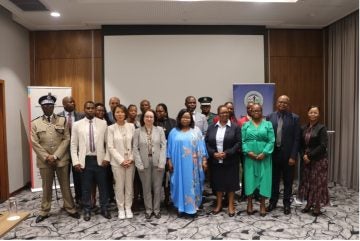
The Kingdom of Eswatini (formerly Swaziland) has launched an initiative to utilise nuclear technology in such sectors as agriculture, health and energy planning. The plan was developed with the support of the International Atomic Energy Agency (IAEA) through a Country Program Framework (CPF) signed by Eswatini Minister of Natural Resources & Energy, Prince Lonkhokhela Dlamini.
The aim is to leverage nuclear technology for social and economic development. Key focus areas are energy security, food security and human health in line with Eswatini’s National Development Plan and the United Nations Sustainable Development Cooperation Framework.
Experts believe partnership with the IAEA will enable Eswatini to make informed decisions on energy supply options, improving the country’s energy future. Additionally, nuclear technology is expected to boost agricultural productivity and advance medical diagnostics, thereby opening new career opportunities. This initiative reflects a broader trend across Africa, where nations are increasingly turning to nuclear energy to meet increasing energy demands and address climate change concerns.
In May, Eswatini signed its second CFP with the IAEA, for 2024–2029. A CPF is the frame of reference for the medium-term planning of technical cooperation between a member state and the IAEA and identifies priority areas where the transfer of nuclear technology and technical cooperation resources will be directed to support national development goals. The Kingdom of Eswatini has been an IAEA member state since 2013. The 2024–2029 CPF identifies five priority areas:
- Nuclear and radiation safety;
- Food and agriculture;
- Human health;
- Water resources management; and
- Energy planning.
The first CFP (2019–2023) identified the same five priority areas.
Eswatini has also received IAEA support in developing its nuclear security. In 2023, the Ministry of Tourism & Environmental Affairs organised a stakeholder workshop to further develop Eswatini’s Integrated Nuclear Security Sustainability Plan (INSSP). Principal Secretary, Khangeziwe Mabuza said the Ministry prioritised the country’s nuclear safety and security programme and was dedicated to working with all stakeholders in discharging their respective mandates.
She added that the Ministry was convinced that collective efforts with stakeholders would ensure that they leverage the assistance and support from the IAEA for the provision of nuclear security assistance and enable them to apply a systematic, structure and comprehensive approach to strengthening the nuclear security regime.
“The Kingdom has no activity on nuclear material and very little on radioactive substances despite having aligned itself with a few international legal instruments governing the safety, security, and safeguards on the use of facilities and activities that emit ionizing radiation,” she noted.
Mabuza said she appreciated support from the IAEA Division of Nuclear Security which had been patient with Eswatini in unpacking this new field and the difficult concepts involved to the point that they had now understood the need to develop and adopt their INSSP.
In May, the Minister of Tourism and Environmental Affairs Jane Mkhonta-Simelane led a high level Advisory Mission on Radiation Safety and Nuclear Security for talks with IAEA. International Atomic Energy Agency (IAEA). The Eswatini Government said in an X post that IAEA “seeks to sensitise, advise and, where appropriate, provide support to Eswatini in her efforts to establish a good and workable regulatory system for radiation safety and nuclear security”.






